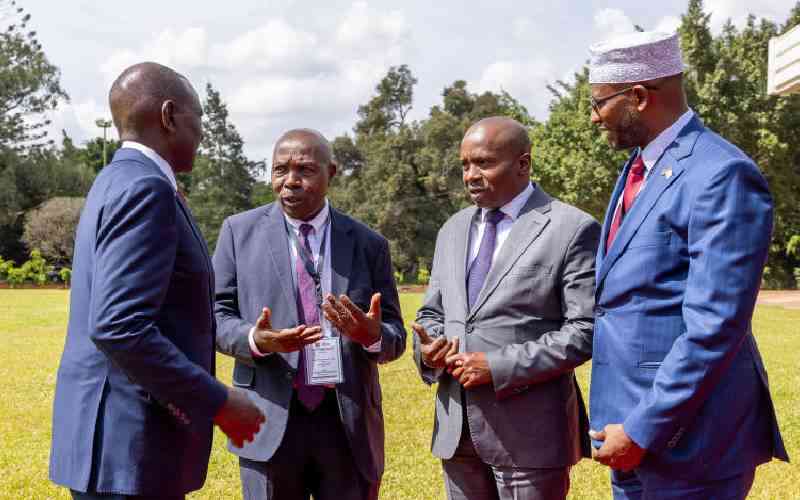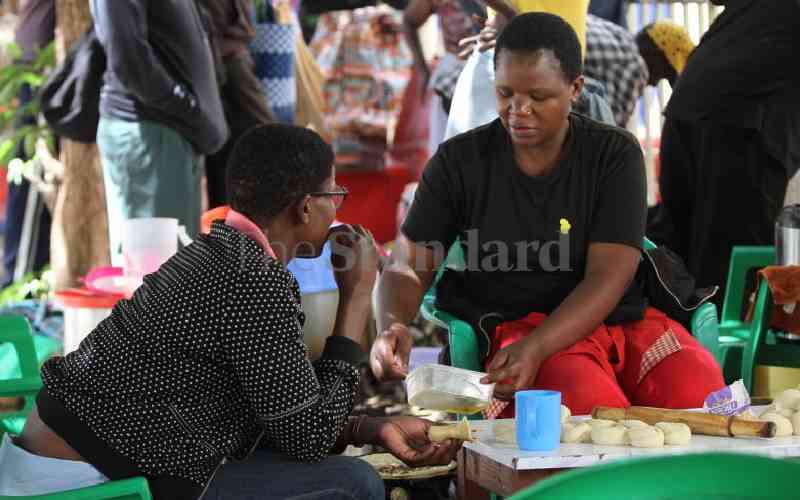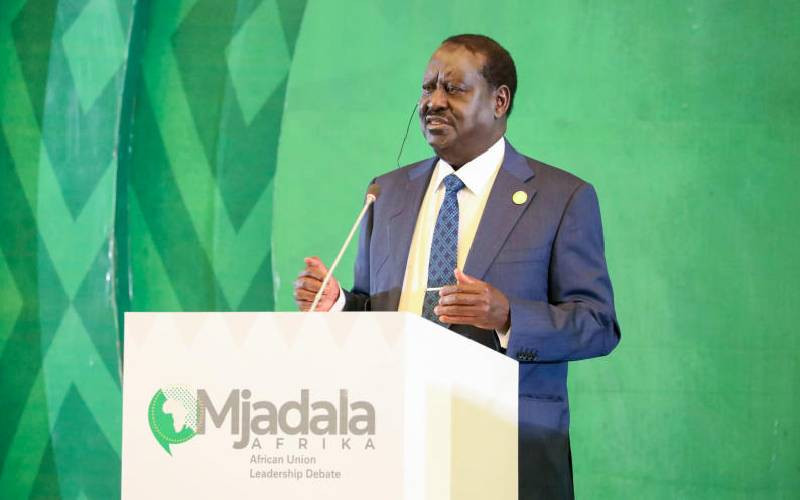By Peter Kimani
Kenya: Over the past two years, I have operated out of America’s fourth largest city, Houston, while attending the University of Houston.
The city and the university immortalise Sam Houston, the army general credited with the conquest that secured the land on which the city was founded.
After his death, Houston was accorded more honour: a memorial museum, a national park, four warships, a US army base and two public universities, among others, were named in his memory.
Even the roads that snake through city of Houston bear the names of army generals who fought alongside Sam Houston, whose personal story is taught to all schoolchildren in that city.
The desire to have Sam Houston’s proper place in history – irrespective of the misrepresentations and misconceptions about those he conquered – appear calculated at ensuring that Texans do not forget him.
The British conquest of our country at the turn of the last century, and their subsequent humiliation at the dawn of 1963, when independence was granted after a bloody insurgency led by the Mau Mau, however, did not mean time was ripe for the proper recording of our history.
“The wind of change had turned into a hurricane,” writes Ngugi wa Thiong’o in his latest essay collection, Globalectics, Theory and the Political of Knowing to express the complex ways in which imperialism was reproduced to frustrate a full expression of our freedom struggle, or what it meant to be a new state.
The most misrepresented narrative in Kenya has been that of the Mau Mau and their contribution towards Kenya’s freedom from Britain 50 years ago.
There are several explanations for the state of the affairs, chief among them a series of frauds invented by our former colonial masters, as well as historical revisionism by their local collaborators.
The first British fraud was the massive land-grab, secured through a series of fictive handwritten treaties, where a simple “x” sufficed for illiterate Africans’ hands. In their mitigation, the British settlers claimed the land was unoccupied and unutilised, and so did not dispossess the locals.
In Facing Mount Kenya, a seminal text on Gikuyu anthropology first published in London in 1938, Jomo Kenyatta explains the centrality of land for the survival of the community to demonstrate how its theft disadvantaged the Kenyan people.
“The Gikuyu consider the earth as the ‘mother’ of the tribe, for the reason that the mother bears her burden for about eight or nine moons while the child is in the womb, and then for a short period of suckling,” Kenyatta wrote, “But it the soil that feeds the child through a lifetime; and again after death, it is the soil that nurses the spirit of the dead for eternity…Thus the soil is the most sacred above all that dwell in or on it, and an everlasting oath is to swear by the earth.”
But at mid-point of the last century, when the British colonial government was faced with an armed resistance from Kenyans demanding their land back, the consistent narrative was that the freedom fighters, whose full name was Mau Mau Land and Freedom Army was a bunch of blood-thirsty rebels without a cause.
Manufactured evidence
Stay informed. Subscribe to our newsletter
To run the movement to the ground, the British authorities produced yet another fraud. They claimed Jomo Kenyatta was the leader of the Mau Mau.
Kenyatta and five others nationalists were arrested after the declaration of Emergency in October 1952, and hurled before a kangaroo court in Kapenguria, the remotest reach of the colony, to deny them access and support from their sympathisers.
In the absence of any concrete evidence, the British authorities manufactured some. They secured the services of Rawson Mbugua Macharia, whom they induced with a scholarship to Exeter University, as well as a government job upon his return from Britain.
Even the judge who adjudicated over the matter, Ransley Thacker, who had been recalled from retirement, received an unusually large pension, according to colonial records.
Macharia delivered his fabricated testimony and judge Thacker delivered his obviously well-rehearsed lines.
“You have successfully plunged many Africans back to a state which shows little humanity,” Thacker thundered. “You have persuaded them in secret to murder, burn and commit atrocities which will take many years to forget.”
Quite predictably, Thacker’s rhetoric of deception survived for decades aided, in no mean by racist texts like colonial spy Ian Henderson’s Hunt for Dedan Kimathi and our even own Kenneth Watene’s play, Dedan Kimathi.
The latter prompted Ngugi and Micere Mugo to write the play, Trial of Dedan Kimathi that rehabilitated the freedom icon’s image.
While Jomo Kenyatta and his co-accused served their seven-year prison sentences, Macharia recanted his evidence and was jailed for perjury.
But such facts remained mere footnotes in our history texts, while Kimathi role in the freedom struggle, at best remained peripheral – until only a few years ago when a bronze statue was erected in downtown Nairobi, on the street bearing his name.
This was preceded by the lifting of the colonial statute that banned the movement more than 60 years ago, and the commencement of the legal suit that Britain conceded last week by agreeing to a multi-million pounds payout for torturing Mau Mau fighters.
“The court did not find the Government liable,” British High Commissioner in Nairobi Christian Turner said last week. “But in spite of that, there is this deep expression of regret and acknowledgement that wrongs were committed.”
Indeed, many wrongs were committed by the British colonial authorities, the most gravely being that they documented the atrocities and stored them away, like the 300 boxes of previously undisclosed files recovered recently in London’s Hanslope Park.
“We brought decades of revisionist research to the case, and with it a full range of knowledge necessary for a successful claim,” Harvard historian Carol Elkins wrote recently in The Guardian.
In another recent piece, The Guardian wrote the use of torture was condoned at the highest levels as it was taking place. Quoting Ian Cobain Cruel Britannia, the newspaper said Kenya colony’s attorney general, Eric Griffith-Jones, said the mistreatment of detainees was “distressingly reminiscent of conditions in Nazi Germany or communist Russia.”
But rather than outlaw the torture, the attorney general proposed its hushing: “If we are going to sin, we must sin quietly.” The quiet sinning has ruptured in the open, and the damning evidence against the British colonial rule in Kenya and elsewhere is unlikely to remain neither quiet nor go unpunished.
And the revisionist history that has been taught in this country for generations will have to be revised yet again, reviewing what has been lost and gained in London’s pay-out last week to appease those it thought it had silenced 60 years ago.
 The Standard Group Plc is a
multi-media organization with investments in media platforms spanning newspaper
print operations, television, radio broadcasting, digital and online services. The
Standard Group is recognized as a leading multi-media house in Kenya with a key
influence in matters of national and international interest.
The Standard Group Plc is a
multi-media organization with investments in media platforms spanning newspaper
print operations, television, radio broadcasting, digital and online services. The
Standard Group is recognized as a leading multi-media house in Kenya with a key
influence in matters of national and international interest.
 The Standard Group Plc is a
multi-media organization with investments in media platforms spanning newspaper
print operations, television, radio broadcasting, digital and online services. The
Standard Group is recognized as a leading multi-media house in Kenya with a key
influence in matters of national and international interest.
The Standard Group Plc is a
multi-media organization with investments in media platforms spanning newspaper
print operations, television, radio broadcasting, digital and online services. The
Standard Group is recognized as a leading multi-media house in Kenya with a key
influence in matters of national and international interest.





